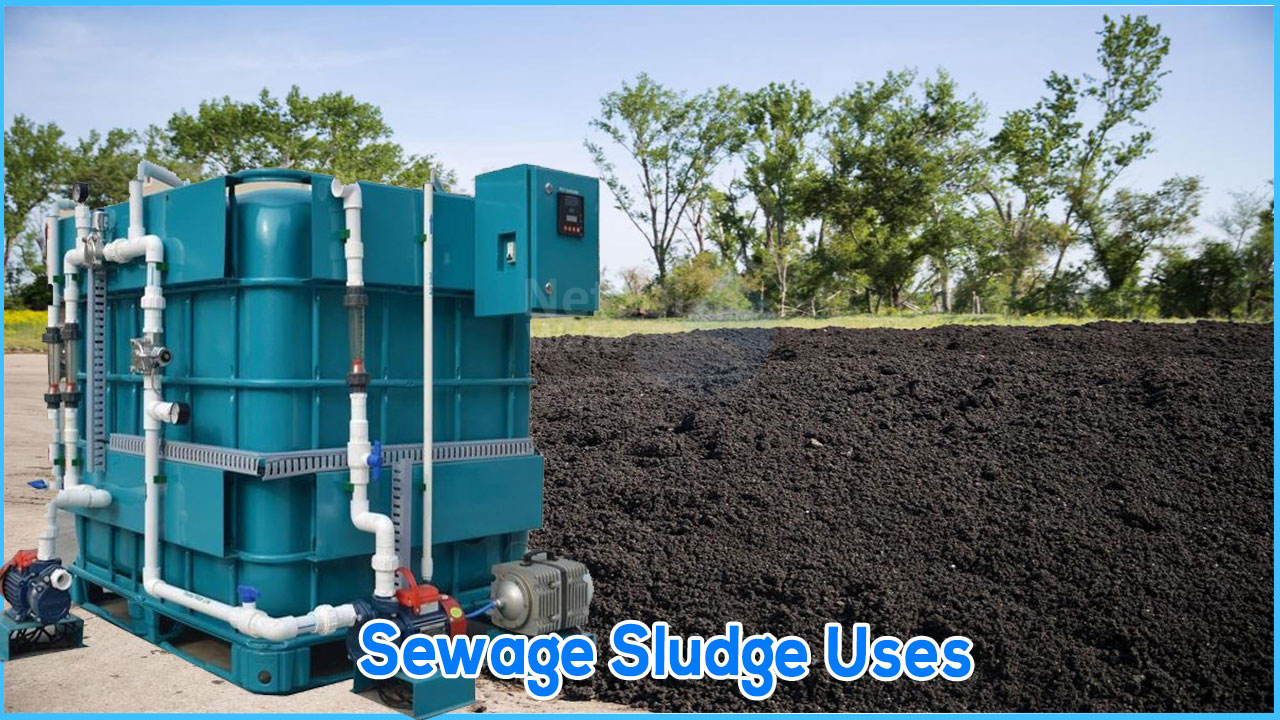Sewage Sludge
During the sewage treatment plant process of wastewater (industrial or municipal), a by- product is released, this semi-solid by-product is known as “Sewage sludge”. It is an organic waste just like mud containing bacteria and pathogens with high organic content. After treatment and drying this sewage sludge is applied to the soil just as a fertilizer. As we know the organic matter in soil is quite low and thus require fill up. Therefore, it is beneficial to use sewage sludge for agricultural purposes. One ton of sewage sludge approximately produces 200kg of organic matter which has potential fertilizer nutrients.
Types Of Sewage Sludges:
There are two main types:
- 1. Primary sludge: solids that are suspended and obtained through gravitational sedimentation come under this category.
- 2. Secondary sludge: this is obtained from microorganisms that take organic matter.
Why to use sewage sluge for agricultural purposes?
- 1. COST EFFECTIVE: It is an inexpensive method to add sewage sludge to soils.
- 2. ALTERNATIVE METHOD: It is better and effective method than the other methods.
- 3. TO RECYLE PLANT ESSENTIAL NUTRIENTS.
- 4. IMPROVES SOIL PROPERTIES (PHYSICAL, CHEMICAL AND BIOLOGICAL)
Has sewage sludge led to productivity of various crops?
- 1. Due to the use of sewage sludge, it has been seen that the productivity of various crops has been increased. Sewage sludge has same properties as of a fertilizer having high nitrogen and phosphorous content. That is the reason it is used for soil enrichment.
- 2. The use of sewage sludge leads to a decrease in the fertilizer amount which are usually chemically synthesized (thereby adding pollution to the environment).
- 3. The use of sewage sludge has also lead to decrease in sewage accumulation in open which causes nuance in the community. As far as sewage sludge is concerned there is no danger of it being toxic as permitted by the legislative bodies. Despite the fact that sewage sludge isn’t toxic doesn’t provide any approval for its monitoring. It should be carefully checked and continuously monitored for toxic elements.
The key factor for applying sewage sludge for agricultural purposes is hydrogen ion concentration. It is well noted that the hydrogen ion concentration should be above 6 wherever the application is done. The hydrogen ion concentration enables us to avoid unnecessary entrainment of toxic metals.
Sewage sludge acts as hydrogen ion regulator and can provide moisture intake as well. The application of sewage sludge for agricultural purposes is economically sustainable as it cuts down the costs of synthetic fertilizers to be used. Besides having so many advantages, it also has few disadvantages. Sewage sludge can cause contamination of food chain and contamination of groundwater, this happens when the sewage sludge has a high amount of toxic metals, pathogens and organic pollutants.
Moreover the bacteria and pathogenic microorganisms should be frequently checked as these may have an impact over the human and animal health. If the accumulation of sewage sludge is more it can affect the respiration process, activity of nitrogen fixing bacteria comes to a halt.
Netsol Water is the leading and top-most sewage treatment plant manufacturer & effluent treatment plant manufacturer in India, Delhi-Noida. We help our customers fulfill their aim of treating Wastewater. Being environmentally conscious, we incorporate the latest technology that conforms to the predefined industrial standards and quality.
Therefore you don't have to worry about the quality and services. We are one of the most cost-effective companies committed to preserve water and serve you the best. We deal in the best Commercial Treatment plants but are not limited to them only.
Contact us to discuss your requirements. We can be reached at 9650608473, or feel free to leave your query at enquiry@netsolwater.com.
We would be happy to assist you!



